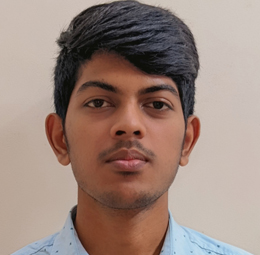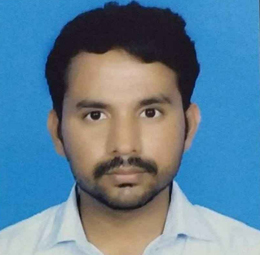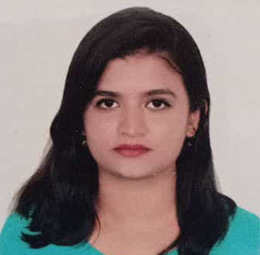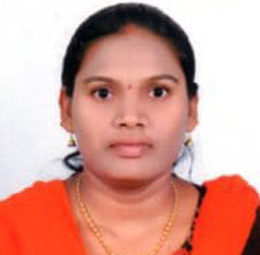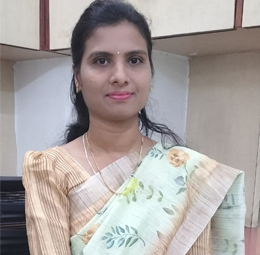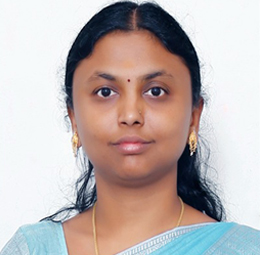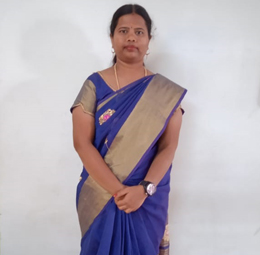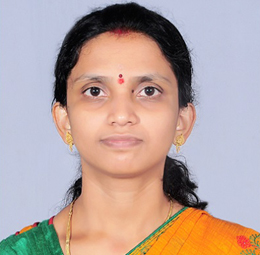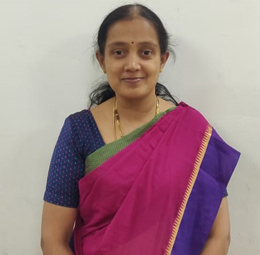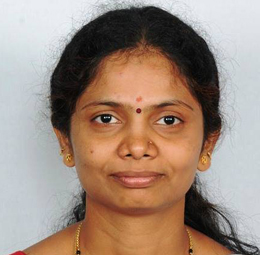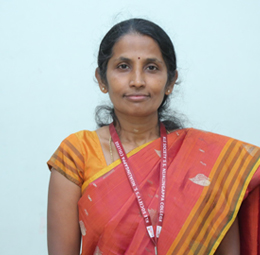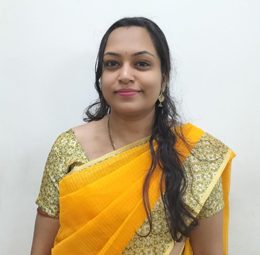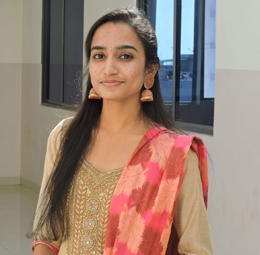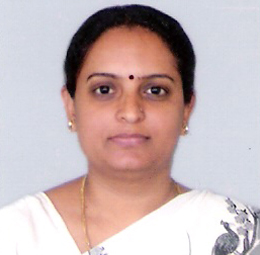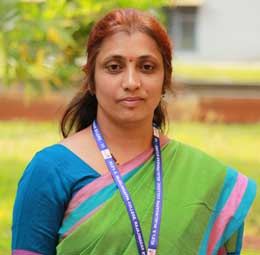Computer Applications (BCA)
- OVER VIEW
- PROGRAMMES
- CURRICULUM
- INFRASTRUCTURE
- FACULTY PROFILE
- STUDENTS PROFILE
- POs, Cos and PSOs
- CALENDAR OF ACADEMIC EVENTS
- ACADEMIC EVENTS
- RESEARCH
-
CO-CURRICULAR AND
EXTRACURRICULAR ACTIVITIES -
EXTENSION ACTIVITIES AND
OUTREACH PROGRAMMES - BEST PRACTICES
-
SOP MANUAL:
STANDARD OPERATING PROCEDURE - GALLERY
- PLACEMENTS
- PROMINENT ALUMNI
- EMINENT PERSONALITIES VISITED
BCA at KLESNC, one of the top BCA Colleges in Bengaluru, was established in the year 2000 with a vision to nurture IT, professionals, with a perfect blend of technical skills and human values. KLE BCA is one of the top colleges in Bengaluru where “Smart classes and close mentoring relationships” is more than a tagline; it is a long-standing philosophy, a hallmark, and a genuine distinguishing feature. The course empowers the students by preparing them to adapt, adhere, apply and achieve balance and excellence in their careers; thereby empowering them to add value to industry and society at large.
Programmes:
Short Term Courses:
| UG | Bachelor of Computer Applications |
| PG | Master of Computer Applications |
| 2020-2021 | ||||
| SL. No. | Department | Certificate Course | Duration of the Course | Link |
| 1 | BCA | Cyber Security Infrastructure Configuration | 2.30 hrs | |
| 2 | RPA Starter | 3.30 hrs | ||
| 3 | Ui path document understanding overview | 4.45 hrs | ||
| 4 | Ui Path AI Fabric Overview | 2.30 hrs | ||
| 5 | Ui path data service | 3 hrs | ||
| 6 | Uipath RPA platform 20.4 Updates | 3 hrs | ||
| 7 | Cyber Security Foundation | 3 hrs | ||
| 8 | Uipath foundation to logging | 2.5 hrs | ||
| 9 | Cybersecurity essentials | 4 hrs | ||
| 10 | Uipath StudioX | 2.5 hrs | ||
| 11 | Uipath Automation Cloud | 1 hr | ||
| 12 | Uipath Security | 1.50 hrs | ||
| 13 | Uipath Processing Mining App One | 9.5 hrs | ||
| 14 | Debugging | 2 hrs | ||
| 2021-2022 | ||||
| SL. No. | Department | Certificate Course | Duration of the Course | Link |
| 1 | BCA | IoT | 64 hours |
|
| 2 | Android | 40 hours | ||
| 3 | AI and ML with Python | 45 Hrs | ||
| 4 | Flutter | 45 Hrs | ||
| 5 | Web Development | 45 Hrs | ||
| 2022-2023 | ||||
| SL. No. | Department | Certificate Course | Duration of the Course | Link |
| 1 | BCA | Campus to Corporate Training | 50 hours | Campus to Corporate Training – Report New V Sem |
Syllabus
- BCA-Syllabus
- NEP BCA-Syllabus-I-II-Semester
- NEP-BCA-Syllabus-III-IV Semester
- NEP BCA Syllabus V-VI Semester
Previous Year Question papers
CBCS
NEP
Technical Staff
STUDENT STRENGTH (2018-2019 to 2022-23)
| Year | Total Number of Intake | Total Number of Admissions taken |
| BCA | BCA | |
| 2018-19 | 480 | 477 |
| 2019-20 | 480 | 467 |
| 2020-21 | 480 | 446 |
| 2021-22 | 480 | 478 |
| 2022-23 | 480 | 478 |
Click to View Result Analysis Report
University Ranks
| Sl. No | Name of the Student &Register No | Course | Awarded by | Ranks | Photo |
| 1. | Yogesh V Naik [R1818249] | BCA | Bengaluru City University UG (BCA) Examination 2020-21 | 2nd |  |
| 2. | Navyashree V [R1918286] | BCA | Bengaluru City University UG (BCA) Examination 2021-22 | 1st |  |
| 3. | Rachana R [R1918305] | BCA | Bengaluru City University UG (BCA) Examination 2021-22 | 8th |  |
| 4. | Pavithra Bai B [R1918296] | BCA | Bengaluru City University UG (BCA) Examination 2021-22 | 10th |  |
Program Outcome
| Sl. No | Programme | Programme Outcome |
| 1 | Bachelor of Computer Application (BCA) |
|
Course Outcome
| 1 | Mathematics |
|
| 2 | English Language and Communication |
|
| 3 | Computer Architecture |
|
| 4 | Programming |
|
| 5 | Operating Systems |
|
| 6 | Data Structures |
|
| 7 | Computer Networks |
|
| 8 | Software Engineering |
|
| 9 | Data Base Management System |
|
| 10 | Software Testing |
|
| 11 | Digital Electronics |
|
| 12 | Data Communication and Network |
|
| 13 | System Programming |
|
| 14 | Artificial Intelligence |
|
| 15 | Analysis and Design of Algorithms |
|
| 16 | Internet Technologies |
|
| 17 | Data Analytics |
|
Program Specific Outcome
| 1 | Mathematics | Reason mathematically about basic discrete structures used in computer science |
| 2 | English Language | Distinguishing different communication process and its practical application. |
| 3 | Computer Architecture | Ability to understand theory of Digital Design and Computer Organization to provide an insight of how basic computer components are specified. |
| 4 | Programming | Analyze a given problem and develop an algorithm to solve the problem and improve upon a solution to a problem |
| 5 | Operating System | Ability to understand the concepts of Process Management, Memory Management, File Management, I/O Management. |
| 6 | Data Structures | Understand and apply amortized analysis on data structures |
| 7 | Computer Network | Understand the design issues and protocols in OSI Reference model |
| 8 | Software Engineering | Select and implement different software development process models |
| 9 | Database Management Systerm | Able to master the basic concepts and understand the applications of database systems. |
| 10 | Software Testing | Understand the fundamentals and framework of Test and Analysis. |
| 11 | Digital Electronics | Hands on training to develop skill to build and troubleshoot digital circuits. |
| 12 | Data Communication and Network | Understanding the fundamental principles of computer networking. |
| 13 | System Programming | Understanding general machine structure and components of programming system. |
| 14 | Artificial Intelligence | Understand the concepts and importance of artificial intelligence |
| 15 | Analysis and Design of Algorithms | Understand the different algorithmic design techniques and choose appropriate algorithm design techniques for solving problems. |
| 16 | Internet Technologies | Understand the working of Internet and new opportunities in IT |
| 17 | Data Analytics | Understand, analyze and interpret the data using an ethically responsible approach |
| Academic Events 2022-23 | |||||
| SL No | Name of the event | Number of Participants | Date | Title | Link to the Activity report on the website |
| 1 | Orientation Program | I Semester Students | 10-09-2022 | “Pradyutita – 2022 Orientation” | Link to report |
| 13-09-2022 | Alumni Interaction | Link to report | |||
| 13-09-2022 | Interaction with Industry Expert | Link to report | |||
| 14-09-2022 | Guest Talk | Link to report | |||
| 2 | Pre-Placement Talk | V Semester Students | 29/10/2022 | “Arjavam” | Link to report |
| 3 | Certificate Course | III year students | 30-06-2022 to 09-07-2022 | AI & ML with Python | Link to report |
| III year students | 30-06-2022 to 09-07-2022 | Flutter | Link to report | ||
| III year students | 30-06-2022 to 09-07-2022 | Web Development Full Stack | Link to report | ||
| Soft Skills Training | V Semester Students | 31-10-2022 To 06-11-2022 | Campus to Corporate Training | Link to report | |
| 4 | Induction Program | I Semester Students | 22-08-2022 To 27-08-2022 | Deeksharambh – 2022 | Link to report |
| 5 | Placement Training | VI Semester BCA & BSc | 05-05-2023 | World Youth Skills Day | Link to report |
| 6 | IT & Culture Fest | All Semester | 12-08-2022 to 13-08-2022 | GRALITZ – 2022 | Link to report |
| 7 | Awareness programmes | All Semester Students | 02-10-2022 | Green Bharat Abhiyan | Link to report |
| 8 | Awareness programmes | I Semester Students | 29-09-2022 | IISHT – Mental Health Awareness Campaign | Link to report |
| 9 | Placement Training | VI Semester Students | 20-06-2022 to 24-06-2022 | Placement Training | Link to report |
| 10 | Farewell Program | VI Semester Students | 05-11-2022 | SAYONARA 2022 | Link to report |
| 11 | Awareness programmes | IV & VI Semester Students | 16-07-2022 | World Youth Skills Day | Link to report |
| Academic Events 2021-22 | |||||
| SL No | Name of the event | Number of Participants | Date | Title | Link to the Activity report on the website |
| 1 | Webinar | II Semester Students | 19-06-2021 | Webology | Link to report |
| 2 | VI Semester Students | 10-07-2021 | Fixed Line Communication | Link to report | |
| 3 | VI Semester Students | 29-07-2021 | Strategic Thinking and Effective Decision Making | Link to report | |
| 3 | National Level Workshop | All Students | 30-09-2021 to 01-10-2021 | Use of DRONES in Preventing Natural Disasters | Link to report |
| Certificate Course | III year students | 21-10-2021 to 02-11-2021 | IoT | Link to report | |
| III year students | 25-10-2021 to 02-11-2021 | Android | Link to report | ||
| 5 | Skill Enhancement Program | III year BCA & BSc Students | 25-05-2022 | Honeywell India Youth Teckathon 2022 | Link to report |
| Online Certification Course | II year students | 29-11-2021 | Ui Path – Data Tables and Excel Automation | Link to report | |
| II Year students | 25-10-2021 to 26-10-2021 | Ui Path – RPA Studio Pro, Automation with StudioX | Link to report | ||
| II year students | 28-10-2021 | Ui Path – Robotic Enterprise Framework | Link to report | ||
| II year students | 24-11-2021 | Ui Path – Application Testing Test Suite | Link to report | ||
| II year students | 09-12-2021 | Ui Path – PDF Automation | Link to report | ||
| Academic Events 2020-21 | |||||
| Sl.No | Name of the event | Number of Participants | Date | Title | Link to the Activity report on the website |
| 1 | Orientation Program | I Year Students | 18-09-2020 | Multidimensional Excellence – A need greater than ever before | Link to report |
| 19-09-2020 | Internet of Things | Link to report | |||
| 21-09-2020 | Lets decode the code behind Software | Link to report | |||
| 21-09-2020 | Sprouting Technology | Link to report | |||
| 22-09-2020 | Improving EQ using Neuro-Linguistic Programming | Link to report | |||
| 23-09-2020 | Talent is Overrated | Link to report | |||
| 23-09-2020 | Future Perspective of BCA | Link to report | |||
| 24-09-2020 | Role of ICT Academy-Bridge between Industry and Academia | Link to report | |||
| 24-09-2020 | Single pointed focus to explore fulfilling career Opportunities | Link to report | |||
| 2 | Webinar | II Semester Students | 15-05-2021 | Cyber Security in Financial Services | Link to report |
| VI Semester Students | 29-05-2021 | Emotional Intelligence | Link to report | ||
| 3 | Online Certification Course | I, II & III year students | 23-09-2020 | UI Path Certification – RPA Starter | Link to report |
| II & III year students | 05-10-2020 | UI Path Certification – AI Fabric Overview | Link to report | ||
| I, II & III year students | 09-10-2020, 28-10-2020, 13-11-2020 & 08-12-2020 | UI Path Certification – Data Service, RPA Flatform, Logging, StudioX | Link to report | ||
| I, II & III year students | 16=04-2021 to 02-05-2021 | UI Path Certification – Path Security, Automation Cloud, Mining App, Debugging | Link to report | ||
Research Paper Presentation with publications
2022 – 23
| Sl. No. | Name of the Staff | Whether Presentation / Publication | Name of Presentation / Publication | Place where it was presented / published | Title of the Theme / Topic | Date & Place |
| 1 | Sharada C | Publication | “The role of Technology Enabled Education in resolving Un-employability in India” | Published | “Growing infrastructure – A Key to Transforming Indian Economy” | 30th and 31st March 2023, KLE SNC, Department of Commerce |
| 2 | Sharada C | Publication | “Impact of online learning on school education” | Published | “Growing infrastructure – A Key to Transforming Indian Economy” | 30th and 31st March 2023, KLE SNC, Department of Commerce |
| 3 | Roopa H R | Publication | “The role of Technology Enabled Education in resolving Un-employability in India” | Published | “Growing infrastructure – A Key to Transforming Indian Economy” | 30th and 31st March 2023, KLE SNC, Department of Commerce |
| 4 | Roopa H R | Publication | “Impact of online learning on school education” | Published | “Growing infrastructure – A Key to Transforming Indian Economy” | 30th and 31st March 2023, KLE SNC, Department of Commerce |
| 5 | Bharathi N | Publication | “The role of Technology Enabled Education in resolving Un-employability in India” | Published | “Growing infrastructure – A Key to Transforming Indian Economy” | 30th and 31st March 2023, KLE SNC, Department of Commerce |
| 6 | Bharathi N | Publication | “Impact of online learning on school education” | Published | “Growing infrastructure – A Key to Transforming Indian Economy” | 30th and 31st March 2023, KLE SNC, Department of Commerce |
| 7 | Prabha B V | Publication | “Public and Private Transport Systems” “Public and Private Transport Systems” | National Level Seminar | “Growing infrastructure – A Key to Transforming Indian Economy” | 30th and 31st March 2023, KLE SNC, Department of Commerce |
| 8 | Koteshwari | Publication | National Level Seminar | “Growing infrastructure – A Key to Transforming Indian Economy” | 30th and 31st March 2023, KLE SNC, Department of Commerce | |
| 9 | Roopa H R | Book Publication | Software Engineering | Skyward Publishers | Software Engineering BCA IV Semester NEP Syllabus | 2023 |
2021 – 22
| Sl. No. | Name of the Staff | Whether Presentation / Publication | Name of Presentation / Publication | Place where it was presented / published | Title of the Theme / Topic | Date & Place |
| 1 | Mrs. Roopa H R | Presentation & Publication | Rising Threats in Expert Application and Solutions | Proceedings of FICR-TEAS 2022 Lecture Notes in Networks and Systems Volume 434 Jaipur, India ISSN 2367- 3370 ISBN 978-981- 19-1121-7 | The Role of Artificial Neural Network in Word Sense Disambiguation (WSD) – A Survey | 2022 Jaipur, India |
| 2 | Mrs. Roopa H R | Publication & Presentation | National Chapter Book | Covid-19 Crisis and India | Application of Science and Technology in Covid – 19 | 2021 |
| 3 | Mrs. Bharathi N | Presentation & Publication | Rising Threats in Expert Application and Solutions | Proceedings of FICR-TEAS 2022 Lecture Notes in Networks and Systems Volume 434 ISSN 2367- 3370 ISBN 978-981- 19-1121-7 | A Survey on Water Usage Optimization Using Artificial Intelligence in Agricultural Sector | 2022 Jaipur, India |
| 4 | Mr. Sriram R | Presentation & Publication | International Conference for Emerging Technologies | 2022 3rd International Conference for Emerging Technologies (INCET) – IEEE Bengaluru Section | An Educational based Intelligent Student Stress Prediction using ML | 2022 Belgaum, India |
2020-21
| Faculty Name | Title of the paper | Name of Conference/Seminar | Name of the Institute/ University | National/International |
| Mr. Pavan A C | Improving the quality of Life WABN/WBSN’s in this Pandemic – A Survey | International Conference | NA | International Conference |
| Mr. Prajwal R | Implication of technology in agriculture – Review on smart agriculture | International Conference |
2021 – 22
| S. No | Name of the Student | Date | Title of the paper | Name of the Journal | ISBN/ISSN No | Impact factor |
| 1 | Ms. Chandana P | Feb 2022 | An article on artificial intelligence for biodiversity conservation | International journal of research and analytical reviews (IJRAR) | E-ISSN 2348-1269, P-ISSN 2349-5138 | 7.17 |
| 2 | Mr. Ganapati Laxmikant Hegde | Feb 2022 | Artificial intelligence in E-Commerce | International journal of research and analytical reviews (IJRAR) | E-ISSN 2348-1269, P-ISSN 2349-5138 | 7.17 |
| 3 | Kusuma B L, Pavithra Bai B | Feb 2022 | Smart Agriculture and agro based industry using various technologies | International journal of research and analytical reviews (IJRAR) | E-ISSN 2348-1269, P-ISSN 2349-5138 | 7.17 |
| 4 | Nagadeepak T V | Feb 2022 | A survey on E Commerce | International journal of research and analytical reviews (IJRAR) | E-ISSN 2348-1269, P-ISSN 2349-5138 | 7.17 |
| 5 | Mohit Ballal B T, R Sneha | Feb 2022 | Live attendance system using image processing | International journal of research and analytical reviews (IJRAR) | E-ISSN 2348-1269, P-ISSN 2349-5138 | 7.17 |
| 6 | Anusha J R, Navyashree V, Suryakanth R | Feb 2022 | Renewable energies | International journal of research and analytical reviews (IJRAR) | E-ISSN 2348-1269, P-ISSN 2349-5138 | 7.17 |
| 7 | Rachana R, Sahana H Aradhya | Feb 2022 | E-Commerce: A survey | International journal of research and analytical reviews (IJRAR) | E-ISSN 2348-1269, P-ISSN 2349-5138 | 7.17 |
| 8 | Rahul G | Feb 2022 | An article on biomaterials and bio devices | International journal of research and analytical reviews (IJRAR) | E-ISSN 2348-1269, P-ISSN 2349-5138 | 7.17 |
| 9 | Rakshitha G, Prajwal J | Feb 2022 | Smart agriculture and agro based industries: an article | International journal of research and analytical reviews (IJRAR) | E-ISSN 2348-1269, P-ISSN 2349-5138 | 7.17 |
| 10 | Rohan Shetty | Feb 2022 | Green innovation in Crypto-currency | International journal of research and analytical reviews (IJRAR) | E-ISSN 2348-1269, P-ISSN 2349-5138 | 7.17 |
| 11 | Sanjana Lakshmi, Sneha S | Feb 2022 | An article on artificial-neural networks | International journal of research and analytical reviews (IJRAR) | E-ISSN 2348-1269, P-ISSN 2349-5138 | 7.17 |
| 12 | Shaguftha Tabia | Feb 2022 | A study on cryptography | International journal of research and analytical reviews (IJRAR) | E-ISSN 2348-1269, P-ISSN 2349-5138 | 7.17 |
| 13 | Sinchana H R, Jeevitha N S | Feb 2022 | Artificial intelligence for biodiversity conservation | International journal of research and analytical reviews (IJRAR) | E-ISSN 2348-1269, P-ISSN 2349-5138 | 7.17 |
| 14 | Swathi S Heralagi, S Prajwal | Feb 2022 | An article on cryptocurrency | International journal of research and analytical reviews (IJRAR) | E-ISSN 2348-1269, P-ISSN 2349-5138 | 7.17 |
| 15 | Tharun V, Darshan N | Feb 2022 | A secure hashing approach using CBC mode | International journal of research and analytical reviews (IJRAR) | E-ISSN 2348-1269, P-ISSN 2349-5138 | 7.17 |
| 16 | Varshitha N, Soujanya Rai K, Yaashika Vinod | Feb 2022 | An article on nano material and technology for sustainable environment | International journal of research and analytical reviews (IJRAR) | E-ISSN 2348-1269, P-ISSN 2349-5138 | 7.17 |
| 17 | Vinay N, Kumaran G | Feb 2022 | E Commerce using drones | International journal of research and analytical reviews (IJRAR) | E-ISSN 2348-1269, P-ISSN 2349-5138 | 7.17 |
| 18 | Vinay N, Umesh S | Feb 2022 | A secure whirlpool hashing approach using CFB mode | International journal of research and analytical reviews (IJRAR) | E-ISSN 2348-1269, P-ISSN 2349-5138 | 7.17 |
Research Publications Details
| Sl.No | Date | Color | Name of the Activity | Beneficiaries |
| 1. | 12/06/23 | White |
|
VI Sem Students |
| 2. | 13/06/23 | Red | 1. Ball Balancing 2. Call the Number 3. Dumb Charades 4. Pictoria | IV Sem Students |
| 3. | 14/06/23 | Green |
|
II Sem Students |
| 4. | 15/06/23 | Yellow |
|
IV Sem Students |
| 5. | 16/06/23 | Pink |
|
II, IV, and VI Semester students |
| 6. | 17/06/23 | Blue |
|
II, IV, and VI Semester students |
| Sl.No | Date | Name of the Activity | Name of Students Participated | Beneficiaries |
| 1. | 01/12/2021 | Best of waste | 50 | I , II & III Year Students |
| 2. | 29/12/2021 | The Bouncer | 35 | I & II Year Students |
| 3. | 17/11/2021 | 1. Sound Spirit 2. Singing | 30 | I & II Year Students |
| 4. | 23/06/2021 | Ludo | 144 | I , II & III Year Students |
| 5. | 26/05/2021 | Gaming Free Fire | 75 | I , II & III Year Students |
| Sl. No | Date | Name of the Activity | Name of Students Participated | Beneficiaries |
| 1. | 01/12/2021 | Singing | 30 | I , II & III Year Students |
| 2. | 29/12/2021 | Dancing | 75 | I & II Year Students |
| 3. | 17/11/2021 | 1. Make up/ Face Painting | 30 | I & II Year Students |
| Sl. No. | Year | Name of the Activity | Purpose | Target Group | Link to Report |
| 1 | 2016-17 | Go Cashless, Go Digital | Benefits of Cashless Transactions | Public | |
| 2 | 2017-18 | Awareness Program | Spreading awareness about computers in everyday life | Public | |
| 3 | 2018-19 | Deforestation | Awareness on Deforestation and its effects | Public | |
| 4 | 2018-19 | Kodagu relief | Kodagu Flood Rescue | People of Kodagu | |
| 5 | 2019-20 | Plastic free India | Awareness on Ill effects of Plastic | Public |
Summary of Placement Details:
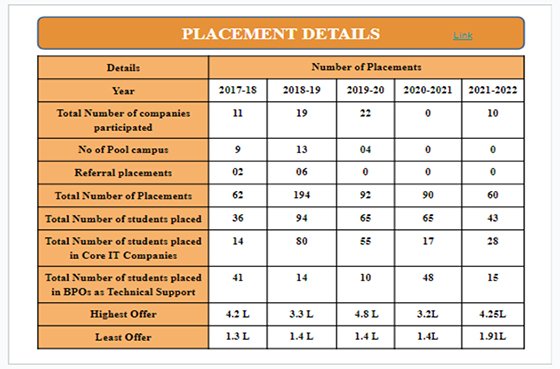
Click To View : Eminent Academicians and Scientists Visitors to the Department
1) CBCS 5th Semester 2022
- V Sem Artificial intelligence_Apr_2022
- V Sem Computer Architecture_Apr_2022
- V Sem Data Communication and Networks_Apr_2022
- V Sem Data Mining_Apr_2022
- V Sem Theory of Computation_Apr_2022
- V Sem_Microprocessor and Assembly Language _Apr_2022
2) CBCS 5th Semester 2021
- Computer Architecture
- Data Communication and Networks
- Java Programming
- Microprocessor and Assembly Language
- Software Engineering
3) CBCS 6th Semester 2020
4) CBCS 6th Semester 2021
5) CBCS 6th Semester 2022
- Cryptography and Network Security
- Machine Learning
- VI Sem PBC_Oct_2022
- VI Sem System Programming_Oct_2022
- VI Sem Theory of Computation_Oct_2022
- Web-Programming
1) NEP 1st Semester 2023
2) NEP 1st Semester 2022
- 1st sem Data structure 2022
- 1st sem Digital Fluency 2022
- 1st sem Discreet Structures 2022
- 1st sem Kannada 2022
- 1st sem PST 2022
- 1st sem Sanskrit 2022
- Corporate-Mathematics
- Data-Structure
- Digital-Fluency
- English
- Journey into Fundamentals and C Programming-Concepts
- Kannada
- Problem-Solving-Techniques
- Sanskrit
3) NEP 1st Semester 2021
- Computer Organizations
- Discrete Mathematics
- Hindi
- Kannada
- Problem Solving Techniques Using-C
- Sanskrit
4) NEP 2nd Semester
5) NEP 3rd Semester 2023
- 3rd sem English 2023
- 3rd sem Operating system 2023
- 3rd sem Python programming 2023
- III Sem Generic English_Apr_2023
6) NEP 3rd Semester 2022
- English
- Financial Accounting and Management
- Hindi
- Kannada
- Object Oriented Programming using C++
- Operating-System
- Sanskrit
7) NEP 3rd Semester 2021
- Additional English
- Financial Accounting and Management
- Hindi
- Kannada
- Object Oriented Programming using C++
- Operating-System
- Sanskrit

